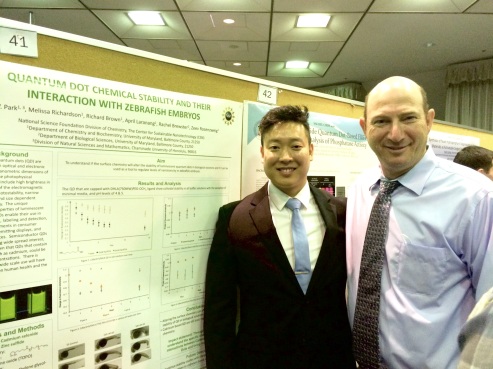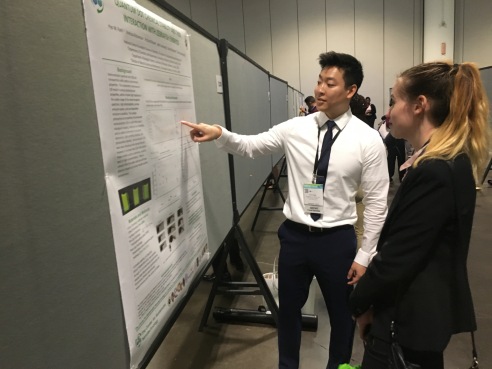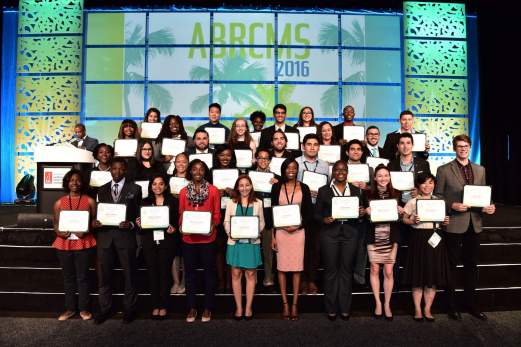It seems like just yesterday when I was enlisted in the U.S. Navy performing naval exercises to improve international relations with South Korea and Japan. I completed search and rescue swimmer training, and troubleshot critical casualties during time sensitive operations. However, I have never been so intimidated in my life than with what I was about to face at the beginning of last summer.

I was honorably discharged from the military in September 2014 and attended Chaminade University of Honolulu majoring in Biochemistry. I was in the fall semester of my sophomore year when my friend who had recently attended the Annual Biomedical Research Conference for Minority Students (ABRCMS), told me about a Research Experience for Veterans (REV) program hosted by the Center for Sustainable Nanotechnology (CSN). I decided to apply and a couple of months later, I woke up to an e-mail notifying me of my acceptance to the summer program. Also, that I would be receiving a stipend of $5,000 along with my airfare, room & board.
I was matched with the Rosenzweig Laboratory at the University of Maryland, Baltimore County (UMBC), which is one of twelve universities involved with CSN. I worked closely with Melissa Muth, a graduate student pursuing her Ph.D in toxicology, who is also a member of CSN. Her goal is to understand and minimize the long-term biological impacts of nanomaterials on organism development before the particles are mass produced and introduced to the market. For my summer project, I aimed to better understand the stability of a specific kind of quantum dots with distinct surface chemistry in different environmental conditions, and also how they interact with zebrafish embryos.

After a couple of weeks in the lab, I was faced with the daunting task of performing an experiment without supervision, and to say that I was intimidated is an understatement. I followed the protocol to the best of my inexperienced ability and hoped for the best that I was doing everything correctly. At times I was successful, while other attempts were complete failures. There was even a time when I poured out the final product that required days to produce, when I was convinced that it was all just waste material. It was a humbling experience, but Melissa suffered and supported me throughout the entire process. The research team also helped me understand the programs and science behind the experiments. In a short amount of time, they became my family.
There were a lot of events and trips during the summer. By the courtesy of CSN, I was able to visit the University of Minnesota along with the other students involved in the same program, toured their facilities and met more members of the CSN. We also toured the Minnesota Nano Center, and the 3M Corporate Campus. Upon my arrival back at UMBC, Dr. Rosenzweig was working with students from Northwest High School to create music videos inspired by UMBC chemistry labs and I debuted in my first music video.

At the end of the summer, I presented my research at the Summer Undergraduate Research Festival at UMBC. When I arrived back home in Hawaii, I submitted my abstract to ABRCMS to present my poster titled “Quantum Dot Chemical Stability and their Interactions with Zebrafish Embryos.” Although the summer program was over, CSN continued to support me as I won a conference travel award and was able to attend the conference in Tampa, Florida.

At the conference, there were many inspirational speakers, informational sessions and networking opportunities. However, the highlight of the conference came when I won a presentation award in the Engineering, Physics, and Mathematics scientific discipline for Nanotechnology at ABRCMS.
This was all made possible by CSN and the Rosenzweig Lab. Mahalo nui loa!!!
Editor’s note: Applications are now open for our 2017 Research Experience for Veterans program, as well as the civilian Research Experience for Undergraduates program!


Hyo – what a great blog post! I hope it inspires others to not be intimidated about jumping into research!